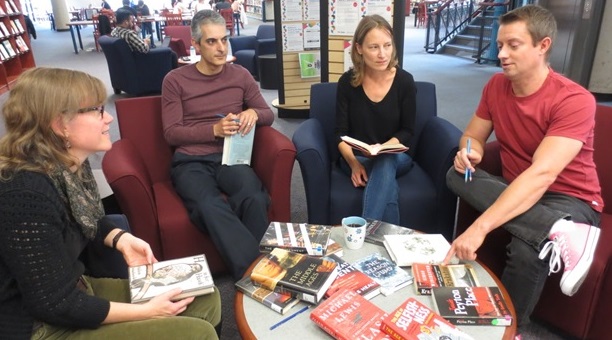Too Many Men on the Ice: The 1978-1979 Boston Bruins and the Most Famous Penalty in Hockey History by John G. Robertson is the second sports book I have read in the past month written by a member of the Scrabble community (following Wild and Outside). When I first saw Too Many Men on the Ice, a large-format paperback at 202 pages, I wondered how Robertson could write about a penalty for that long. While he certainly wrote about the penalty that likely cost the Boston Bruins the Stanley Cup in 1979, he also provided an extensive backstory, outlining the Bruins’ rivalry with the Montreal Canadiens and how the American team almost always tanked against them in the playoffs. I like how Robertson prefaced this fateful game:
“It also encapsulated the immense frustration that the Bruins’ players, coaches, management and fans have felt for decades over their team’s infuriating inability to upend the Habs in the playoffs and win critical games at the Montreal Forum.”
With the semifinals tied at three games apiece, Boston faced Montreal for game seven at the Forum. A late penalty in the third period against Boston for having too many men on the ice gave Montreal the opportunity to tie the game, and indeed Guy Lafleur scored on the power play with 1:14 left in regulation time. The Habs scored in sudden death and proceeded to the finals against the much weaker New York Rangers. The Canadiens defeated the Rangers 4-1 and were Stanley Cup champions once again.
I had never known about this infamous game or penalty, and Robertson made the game, as well as all the games he covered with play-by-play commentary, read as exciting as they could be without being there in person. The Bruins’ coach, Don Cherry, was the most colourful of hockey personalities for his wardrobe as well as his banter and he provided insightful game analysis and always a quotable line. It was never a boring read whenever Cherry was on the scene. I will admit that the double-page spreads of solid text looked daunting, especially since I am not usually a reader of sports books, but with this one I couldn’t put it down. The writing flowed so fast, just like the action in a hockey game. It was a pleasure to read.
Robertson researched this book like mad and the chapter notes were bursting. I used his endnotes to find Toronto Star articles on-line.
Find this book in the Mississauga Library System's on-line catalogue


